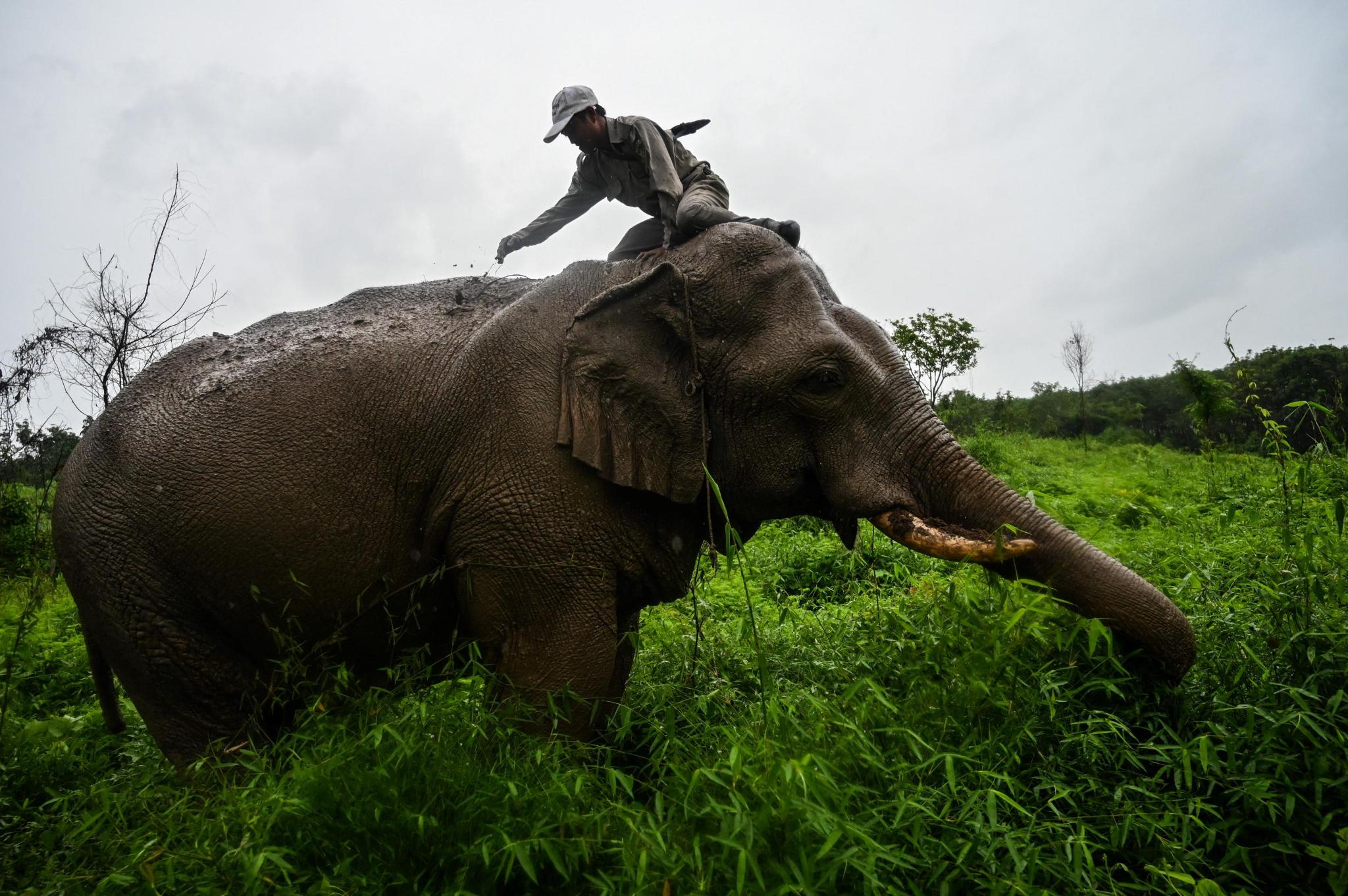
A military column that has been assaulting villages in western Bago Region is using elephants and their keepers to shield itself from attack, according to resistance forces active in the area.
The column, which has carried out multiple raids in the eastern part of Bago’s Nattalin Township since arriving there last Sunday, is holding around 100 people hostage, including elephant trainers and their families, a spokesperson for the Bago Region People’s Defence Force (PDF) told Myanmar Now.
The civilians, along with 20 elephants, were taken from Nyan Le, a village located in the Bago Yoma mountain range about 30km east of the town of Nattalin, according to Wai Yan, the PDF spokesperson.
“That column has been launching assaults for three or four days now. We’ve been trying to attack them with explosives and snipers,” he said, adding that the presence of so many civilians has made it difficult to take effective measures against the regime forces.
A PDF battalion based in neighbouring Thayarwaddy District claimed that it carried out an attack on the column that resulted in six junta casualties.
However, Myanmar Now was unable to independently verify this figure or determine if any civilians were killed or injured.
The villagers who were abducted work for the forestry department and are “very poor people,” according to a Thayarwaddy resident who spoke on condition of anonymity.
A former military officer in his 60s said that soldiers have often used elephants and their trainers as porters and guides in the past, but added that the current situation was unusual.
“This is the first time I’ve ever heard of family members being involved as well,” he said.
On Monday, local PDF forces posted a warning on their Facebook page telling locals in western Bago Region to steer clear of junta personnel, as fighting could break out at any time.
